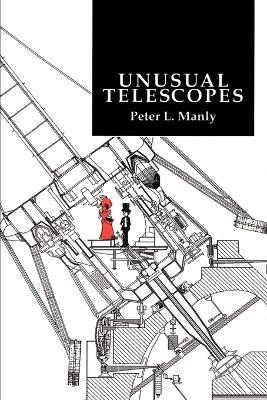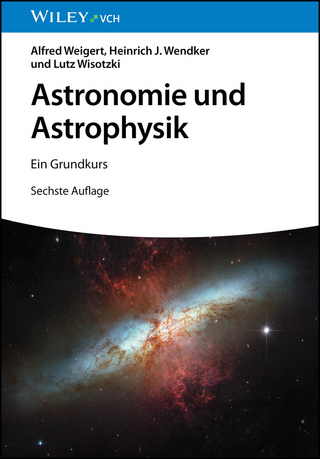
Unusual Telescopes
Seiten
1995
Cambridge University Press (Verlag)
978-0-521-48393-3 (ISBN)
Cambridge University Press (Verlag)
978-0-521-48393-3 (ISBN)
Peter Manly surveys more than 150 unusual telescopes designed by amateur and professional astronomers to suit some special need.
Excellence in observation is crucial to astronomy. Optical designers, engineers and astronomers have tried all kinds of novel ways to improve telescope design, in the quest for better and more accurate telescopes. In this book, Peter L. Manly surveys more than 150 unusual telescope designs. They are all built by amateur and professional astronomers to suit some special need. This survey includes an inflatable telescope, and one with a liquid mirror. Every so often, a neglected design comes back into fashion: the largest telescopes now under construction use the alt-azimuth design that was ignored for over a century, and liquid mirror telescopes can be used for zenithal astronomy. The author shows why a particular engineering approach makes each telescope unique, and explains the rationale behind the design. The effects on telescope performance are also discussed where possible. This is not just a collection of weird and wonderful devices that proved to be false starts: the author includes the first instrument to measure star diameters, and the first useful radio telescope. This book is a resource and stimulus for anyone who likes to build astronomical telescopes.
Excellence in observation is crucial to astronomy. Optical designers, engineers and astronomers have tried all kinds of novel ways to improve telescope design, in the quest for better and more accurate telescopes. In this book, Peter L. Manly surveys more than 150 unusual telescope designs. They are all built by amateur and professional astronomers to suit some special need. This survey includes an inflatable telescope, and one with a liquid mirror. Every so often, a neglected design comes back into fashion: the largest telescopes now under construction use the alt-azimuth design that was ignored for over a century, and liquid mirror telescopes can be used for zenithal astronomy. The author shows why a particular engineering approach makes each telescope unique, and explains the rationale behind the design. The effects on telescope performance are also discussed where possible. This is not just a collection of weird and wonderful devices that proved to be false starts: the author includes the first instrument to measure star diameters, and the first useful radio telescope. This book is a resource and stimulus for anyone who likes to build astronomical telescopes.
Preface; 1. Optics; 2. Telescope mounts; 3. Telescope and mount materials; 4. Strange drivers; 5. Moving the whole telescope; 6. The moving eyepiece; 7. The stationary eyepiece; 8. Limits; 9. Whimsy; Index.
| Erscheint lt. Verlag | 27.4.1995 |
|---|---|
| Zusatzinfo | 90 Halftones, unspecified; 50 Line drawings, unspecified |
| Verlagsort | Cambridge |
| Sprache | englisch |
| Maße | 153 x 227 mm |
| Gewicht | 400 g |
| Themenwelt | Sachbuch/Ratgeber ► Natur / Technik ► Weltraum / Astronomie |
| Naturwissenschaften ► Physik / Astronomie ► Astronomie / Astrophysik | |
| ISBN-10 | 0-521-48393-X / 052148393X |
| ISBN-13 | 978-0-521-48393-3 / 9780521483933 |
| Zustand | Neuware |
| Haben Sie eine Frage zum Produkt? |
Mehr entdecken
aus dem Bereich
aus dem Bereich
die Suche nach der Urkraft des Universums
Buch | Hardcover (2023)
Klett-Cotta (Verlag)
CHF 34,95
Perspektiven auf die Menschheit
Buch | Hardcover (2024)
Klett-Cotta (Verlag)
CHF 34,95


